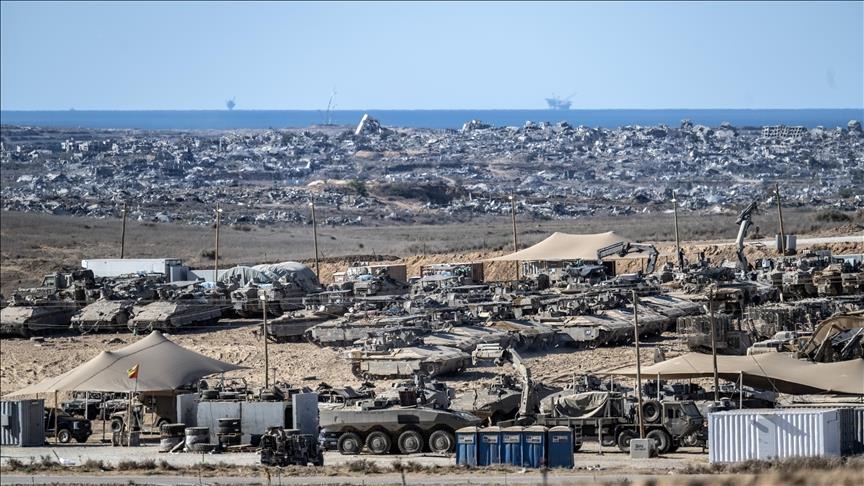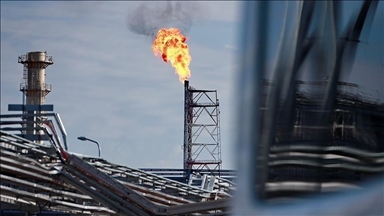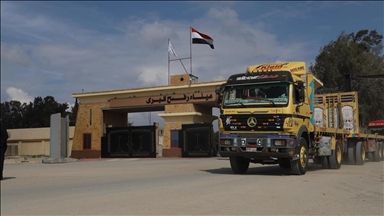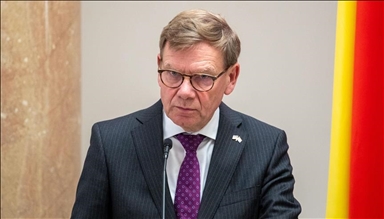Gaza ceasefire: Unresolved questions and what happens next
As 2nd phase of Gaza ceasefire deal approaches, key questions about governance, security in post-war Gaza remain unanswered

ISTANBUL
Following the release of Israeli hostages and Palestinian prisoners, the first stage of the Gaza ceasefire deal is nearing completion.
On Tuesday, US President Donald Trump announced the start of “Phase Two” of the US-brokered deal, which calls for the establishment of a new governing mechanism in Gaza, the creation of a multinational force, and the disarmament of Hamas.
However, questions continue to mount over what this next phase will entail, as analysts said that key issues surrounding post-war governance and security in Gaza remain unresolved.
Gaza’s governance
Trump’s 20-point plan states that Gaza will be governed under the “temporary transitional governance of a technocratic, apolitical Palestinian committee,” responsible for managing public services and municipalities.
It says the committee will consist of qualified Palestinians and international experts, operating under the supervision of a new transitional body — the “Board of Peace” — headed and chaired by Trump, with other members to be announced, including Former UK Prime Minister Tony Blair.
The body will set the framework and handle funding for Gaza's redevelopment until the Palestinian Authority can "securely and effectively take back control of Gaza."
However, questions arise regarding the administration and governance of "New Gaza."
“Is it to set Gaza up as part of a Palestinian state like the Oslo Accords, or is it to establish a new entity that is simply not to be governed by Hamas, or is it to set the stage for eventual Israeli control of Gaza permanently?” said Ryan Bohl, a senior Middle East analyst, in an interview with Anadolu.
According to him, there are many divergent viewpoints regarding Gaza's future, including Hamas wanting a Palestinian state and rejecting foreign rule of Gaza.
"While Israelis under Netanyahu want Gaza to eventually be under permanent Israeli control, potentially even resettled and with the Palestinians expelled from the Gaza Strip, the international community would like to restart the two-state solution," he added.
For Ori Goldberg, an Israeli academic and analyst, it remains unclear who will ultimately administer Gaza.
“We did hear that 15 names (technocrats) have been selected for this board and have been passed along to Israel and to the signatories to the deal for vetting ... we don't know the role of the Palestinian Authority,” Goldberg said.
Disarmament of Hamas
Trump’s plan explicitly stipulates that Hamas and other factions will have no role in Gaza’s governance. “All military, terror, and offensive infrastructure, including tunnels and weapon production facilities, will be destroyed and not rebuilt,” it reads.
The plan insists on a demilitarization process, including placing weapons through an agreed process of decommissioning.
Yet, questions arise over Hamas’ willingness to comply, given its long-standing rejection of disarmament and insistence on a Palestinian national dialogue to determine Gaza’s future.
Qatari Prime Minister Sheikh Mohammed bin Abdulrahman Al Thani told The New York Times that one question that needs to be addressed is to whom Hamas would hand over its weapons, adding that there were serious disagreements within the group regarding disarmament.
Bohl said that some reports suggest Hamas’ willingness to hand over weapons to a Palestinian technocratic government.
“It says that Hamas is willing to set aside weapons symbolically if it advances the goal of an independent Gaza, of an independent Palestinian state, but it looks like they also want to reserve the right to either rearm or to keep certain weapons themselves.”
According to Bohl, the disarmament process could take considerable time, especially if Israel insists on the surrender of all weapons, including small arms.
International Stabilization Force
The ceasefire deal also envisions a temporary International Stabilization Force (ISF), comprising US, Arab, and international partners, to deploy in Gaza as an “internal security solution.” The Israeli army would “progressively” hand over the occupied Gaza territory to the ISF.
On Monday, Trump said that the US has authorized Hamas to perform temporary policing functions in Gaza during the transitional period.
However, details about the ISF, including participating countries and its mandate, remain unclear.
Bohl ruled out the likelihood of UN involvement, saying both Israel and the US would oppose it. He also questioned the ISF’s objectives, saying will it replace Israeli troops or will it have a security mandate.
“Right now, the way that it looks is that it could be like some of these multinational forces that have been tried in the past, like in Lebanon in the 1970s, where there was a pan-Arab force that was sent into the country to stabilize the situation.”
Israel to refrain from resuming genocidal war
The Gaza ceasefire plan also states that Israel will not occupy or annex Gaza.
Bohl said that due to the ceasefire and pressure from the international community, Israel is unlikely to resume a full-scale genocidal war and mass ground assault.
Israel will likely continue conducting targeted airstrikes against Hamas, he said, adding that the next year is expected to be less intense and violent.
“If Israel is going to carry out a less intense military campaign in Gaza, that could easily take them all the way through the elections next year to a new government that is elected on the promise of ending everything in Gaza and getting the Israeli troops out.”
Goldberg said that Israel has received a severe reprimand, and Trump's speech in the Knesset and his entire mood is putting pressure on Israel to make sure the ceasefire holds.
Reopening of Rafah border and aid distribution
The ceasefire plan also includes provisions for humanitarian aid entry and the reopening of the Rafah crossing for passengers.
On Tuesday, trucks carrying humanitarian supplies from Egypt crossed into the buffer zone as limited deliveries continued. Analysts believe Israel remains obligated to allow aid under international pressure.
Goldberg said that while the plan lacks detailed implementation mechanisms, Trump’s success in rallying regional support is notable.
“Trump has the cooperation of very powerful regional players from President (Recep Tayyip) Erdogan to Gulf ... to Egypt and Iraq and all the other countries that were there.”
Anadolu Agency website contains only a portion of the news stories offered to subscribers in the AA News Broadcasting System (HAS), and in summarized form. Please contact us for subscription options.







